I <3 The Uzbek Post
We woke up the next morning in Bukhara, Uzbekistan.
After feasting monstrously on the lavish breakfast at the Hotel Malika, we headed out into the street to find a black Lexus SUV with Chinese plates parked outside. It seemed these Chinese chaps were on their own adventure through Central Asia, and from what we could see, they were doing it in style.
We continued to wheel away from the old city, positively thrilled at how unique the buildings were here in Uzbekistan. So many of them managed to simultaneously channel the Soviet brutal vibe and the ornate central Asian vibe. It was stupendous.
Our first goal for that day would be to head to the post office and send off the plate we had purchased the day before for Project K9. Considering the standard Uzbek levels of bureaucracy, we were more than prepared for this to take most of the day. We were, however, pleasantly surprised to find that only a minimal amount of waiting in line and being cut by strangers, was required, and that (probably) because of the bizarre black market exchange rate we’d been using, despite the rather remote nature of the place, sending a giant fragile plate off via airmail cost less than sending a similar package from Saigon. Nice one, Uzbekistan.
Not only was there price performance and convenience to be found in this blocky Soviet building, but the workers at the Bukhara post office were wonderful people, more than ready to bend over backward accommodating our terrible Russian, and helping us to properly package the plate for its long overseas journey.
Feeling splendid about the completion of that mission, we piled back onto the bikes and headed out in search of a little more wheeling, followed by a little more food.
The wheeling was just too easy in this city. Any direction we chose to travel offered a fantastic assortment of treasures. The food, however, was tough, and we wheeled for quite some time before we spotted what you might call a “chicken from the machine†type restaurant. Not wanting to squander what could be the only restaurant we saw for the next four kilometers, we headed in.
The owner of the place ran up from the basement kitchen to meet us. She spoke Russian that was accented much more like the Russian I’d learned in Petrograd, and I found her very easy to understand. She also seemed to really enjoy my filthy, broken Russian, complimenting me again and again.
With all those pleasantries out of the way, we decided to focus on chicken. Low and behold, it turned out to be chicken in the same Soviet style as the place Shoney’s grandfather had taken us to across from the Hotel Uzbekistan in Tashkent. It was accompanied by the same thick Bloody Mary mix sauce, though here the Soviet bread was replaced with Uzbek Lapyoshka.  So we drank Kvas and feasted on chicken, feeling things could not get much better.
Beside our table, a large fish tank displayed a nearby sign requesting patrons to “please not smoke near the fish.”
So with stomachs once again stuffed, we headed back out on the bikes, wheeling off in a new direction. This move ended up taking us out past some very remotely positioned government buildings, and into areas where giant swaths of farmland were being turned into huge public projects. Take this giant orb on a pedestal, for instance. There were probably a few square kilometers of walkways placed around here, with forests of tiny trees, just waiting to grow into a grand shady forest.
We rode in toward the orb on the pedestal, and as we grew closer, the sound of construction befell our ears. All around this orb were Uzbek workmen building both the orb itself and other structures, like a large theater-opera-house type building, and like this arena – for blood sports perhaps?
We wheeled the complex thoroughly,  before turning back to return to town, looping around the old city and by the giant fortress that we’d seen the day before. Soon we ended near a huge and ancient mosque, overlooking one of Bukhara’s last in-city ponds. Most of the ponds, once common in town, had been paved over by the Soviets, but as a man walking by with a rake explained to me, this one was kept around because it was the most beautiful, and played an important role in the architecture of the nearby mosques and schools buildings.
The nearby buildings certainly were impressive, with many of those large wooden hand-carved pillars, holding up plenty of complicated Uzbek tile work.
Then, true to our word, we returned to the giant stadium, where we began to give it a much more thorough exploration.
It was not abandoned, per say, but in the way that many things are in the post-Soviet world, it had been allowed to fall into disrepair.
It was still used by the populace though,  for children’s sports, physical education, and the like (we saw a few signs for youth boxing classes), but it also felt very much like a post apocalyptic wasteland at the same time. All bathed in that delicious Uzbek sunlight.
We took our Speed TRs for a quick lap around the track, there and then headed back outside, glancing down at our watches. It was high time to head back to the Hotel Malika to pick up our bags. The wheel to the train station was quite flat, but it was still 20 km.
On our way out, we were stopped by one of the groundskeepers at the stadium. He wanted to learn more about us, and we decided we could spare a little time to chat with him. When he found out we were from America, he became very excited and began asking about American Indians, which he referred to as Indianski people.
Are there Indians that still flight cowboys in America? Where do the Indians live? Are they rich or poor? Can they work any job they want? What about a hotel? A hotel for foreigners? So you’re telling me I might check into a hotel in the US and an Indianski might just take my bag or be working at the front desk!? Get out of here!
I’m sure he was imagining Chief Sitting Bull unloading his bags from a New York taxicab.
We had already been talking for probably 20 minutes, so I just said, “yep that’s right,†and then bid him farewell. And with that, off we went, swinging by the Malika to grab our bags, and then hitting the road. We were a little behind schedule, but if we rode hard, we should still have been able to make it to the train station in Kagan in time to buy a few snacks and get on the train.
Then my rear tire went flat. First flat of the trip, right there and then in Bukhara, Uzbekistan. We looked down at our watches… should we take a cab? Or should we try to fix this thing and keep moving. Finally, we decided that we’d give ourselves 15 minutes to fix the flat, and if we were having trouble getting the big apple tire off the rim, or it was just taking too long, we’d take a cab.
We immediately switched into AsiaWheeling crisis management mode, flipping the bike over and working as fast and precisely as we could. As we were frantically working on the cycle, a child approached, pushing another legless child in a wheelchair. The two of them wheeled the chair up next to where I was furiously tearing the big apple off the rim and pulling out the inner tube.
Ah! It was a pinch! I had let my tire pressure get too low in my rear wheel! Good news was that the spotless reputation of our Schwalbe Big Apples (Thank you SpeedMatrix) was still unmarred. Bad news was that time was ticking and the kids had begun to beg from us in a most heart wrenching way, crying out as though we were their mothers, and asking in Russian for money, telling me he was cold (it was probably 90 degrees Fahrenheit out) and hungry (this was plausible).
In a stunning demonstration of inhumanity, I looked up from the wheel, and shouted in English “Times are tough for all of us, kid! Now get out of here!†I underlined the statement with a few choice phrases in Russian, and the kids shut up, but still hung around to watch the drama unfold.
A few minutes later, the tire was done and we were back on the road. The burst of adrenaline from the flat was still coursing through my veins and we road very hard, making the 20 km, fully loaded, back to Kagan in less than an hour.
Once at the train station, we purchased a a few snacks, and then headed for our train.
When we got on, we found our section of the train to be just packed with foreigners. There were five or six Chinese stoneworkers from Beijing here to inspect a quarry, a family of somewhat disoriented French holidaymakers, and us.
I felt sorry for the poor automobile factory workers with whom we shared a bunk. For the air conditioning did not run all night long, the Chinese played Chinese pop music at ridiculous volumes from their mobile phones, and the French people were constantly occupying the bathroom having all been struck by dysentery.
![]()

















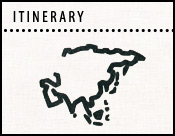
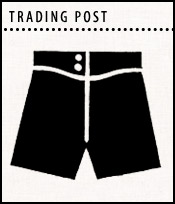
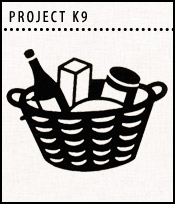
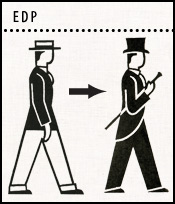
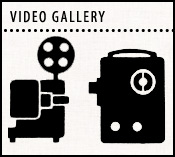
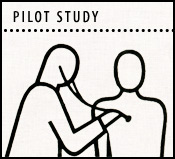
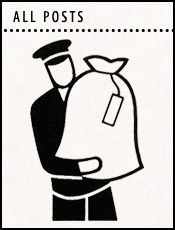





Comments
did i read that right… “share a bunk”?!?! oh dear god!